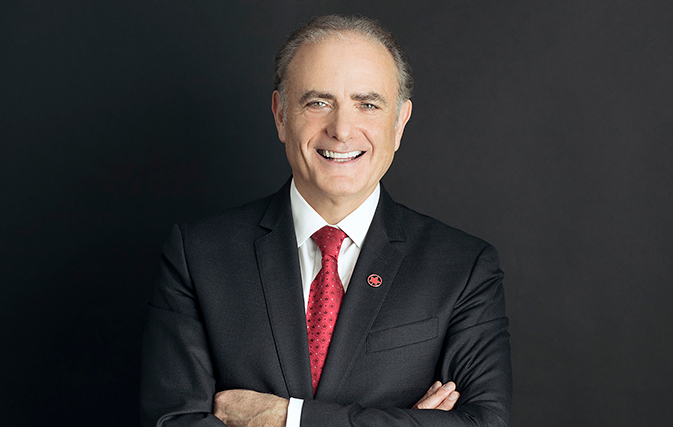MONTREAL — Air Canada President and CEO Calin Rovinescu says he’s open to providing refunds as a condition for the federal government’s proposed financial assistance for the airline industry.
But he strongly opposes government-owned stakes in airlines. In an interview with Bloomberg BNN’s Amanda Lang, Rovinescu says state ownership of airlines “has been a colossal failure elsewhere around the world.”
Rovinescu noted that coming into the pandemic Air Canada had one of the strongest balance sheets in the global airline industry, calling it “somewhat of a rainy day fund. We never expected this level of rainy day.”
Air Canada’s strong financial position has sustained the company through these difficult months of 2020, what Rovinescu characterizes as a “deep hibernation”, with operations at approximately 10% of passenger revenues compared to last year.
He notes that around the world, government support for airlines has topped US$200 billion. In Canada, he says, “it took the government some time to appreciate that our industry touches so many parts of the Canadian economy.”
On Nov. 8 Transport Minister Marc Garneau announced that the federal government would initiate talks with Canada’s airlines for financial assistance packages. The assistance is contingent on refunds for passengers whose flights were cancelled as a result of the pandemic.
Air Canada has so far refunded more than $1.2 billion in refundable tickets since the start of 2020. “Of course there’s been a lot of pressure in terms of non-refundable tickets too,” he said.
“The Minister has indicated that refunds would be required and based on the size and scale of the program we have no issue with that at all,” he said. The terms of the support package would have to be adequate, appropriate and reasonable, he added.
Lang asked Rovinescu about governments taking equity in airlines. “There’s a long history of governments owning equity in airlines and the track record is not good,” he said, adding that, with some exceptions, “state ownership of airlines has been a colossal failure elsewhere in the world. We are certainly not advocating for it.”
Air Canada, along with other stakeholders in the travel industry, has been a vocal proponent of the #TimetoTravel initiative launched this past summer.
“FIVE LAYERS OF RESTRICTIONS”
Rovinescu pointed to Canada’s “five layers of restrictions”, including blanket prohibitive measures against inbound travel, the ongoing closure of the Canada-U.S. border, the 14-day quarantine (“the highlight of the problem”), the Atlantic Canada bubble and the overriding travel advisory against all non-essential travel.
“That combination, while it may have been appropriate on March 14, I would suggest that on Nov. 17 it needs to have different shades of grey,” he said.
Testing is “the silver bullet”, he added, pointed to Air Canada’s partnership with McMaster HealthLabs for the COVID-19 testing project launched with the GTAA at Pearson Airport in September.
As reported yesterday, an interim report released by McMaster Health Labs (MHL) on the COVID-19 testing project at Pearson Airport in partnership with Air Canada and the GTAA, and with support from the Government of Canada, shows that 99% of study participants tested negative for COVID-19, with 1% testing positive.


